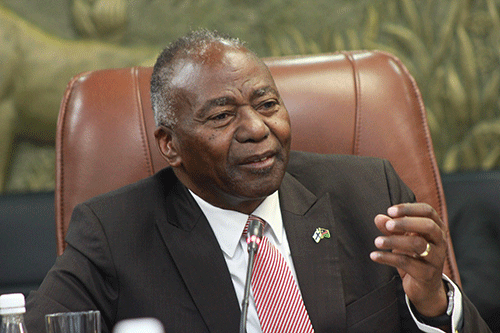Speaker of the National Assembly Peter Katjavivi has said corruption comes with great costs, impedes democratic institutions, disregards the rule of law and limits the trust of citizens in the State.
He said corruption equally carries grave socio-economic costs by hindering equal opportunity to build sustainable economic growth.
“The fight against corruption is not solely the responsibility of the Anti-Corruption Commission (ACC) but requires all of us to collectively commit to this noble cause,” said Katjavivi, who was speaking yesterday at the national conference on the development of a second anti-corruption strategy and action plan (2021-2025).
He called for the cooperation between national leaders, including traditional leaders, church institutions, civil society, the media as well as international bodies to fight corruption and ensure success in all these endeavours.
Under the pillar of effective governance of the Harambee Prosperity Plan (HPP), the government is committed to strengthening institutional capacity at the prosecutor general’s office, police and the Anti-Corruption Commission.
It further aims to increase the level of political accountability through compliance with the Electoral Act of 2014.
“We must continue to enhance systems in place to ensure that our administrative processes are reinforced to allow for greater monitoring, accountability and transparency,” stated Katjavivi.
The Anti-Corruption Act covers passive and active bribery, attempted corruption, extortion and bribing of foreign or public officials. A range of legislation covers other corruption offences but despite a strong framework for curbing corruption, enforcement of the law has proven to be inconsistent and to some extend unreliable.
“To fight corruption efficiently and effectively, we must continue to promote a national culture of transparency. The ACC as a leading body fighting corruption in the country must embark on awareness and advocacy campaigns to sensitise citizens throughout the country,” highlighted Katjavivi.
“This is important to ensure that citizens buy into the work of the ACC and we create the appropriate network to reinforce its mandate. It is therefore imperative that we continue to strengthen the relationship between ACC and the oversight body, such as parliament through its various parliamentary standing committees.”
In August 2016, Cabinet approved the country’s first National Anti-Corruption Strategy and Action Plan 2016-2019, which ended in March 2020.
Subsequently, Cabinet earlier this year considered the progress made in implementing the anti-corruption activities and decided that consultative and engagement meetings for the development of a second revised National Anti-Corruption Strategy and Action Plan be held, which must culminate in the implementation of the anti-corruption programmes for the period (2021-2025).


